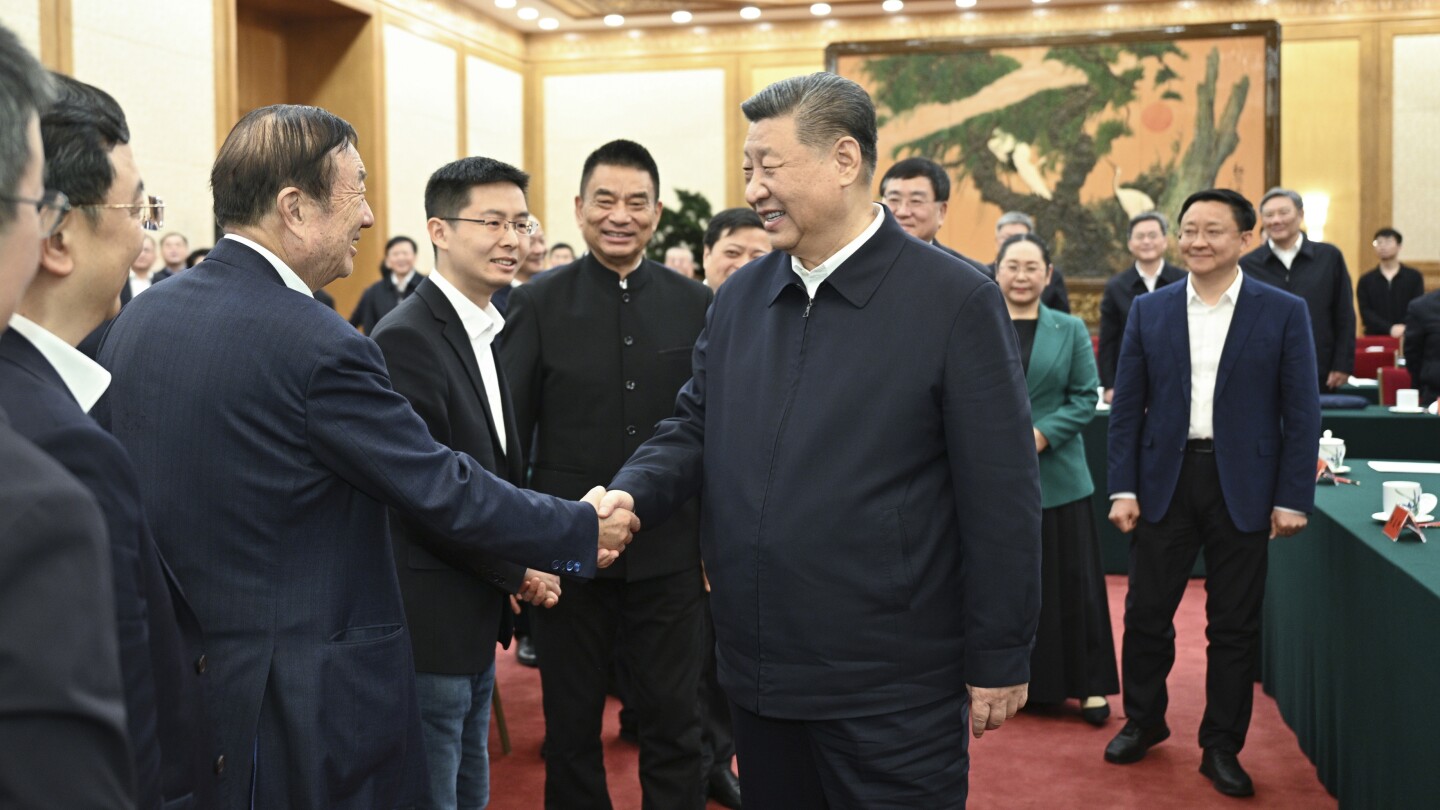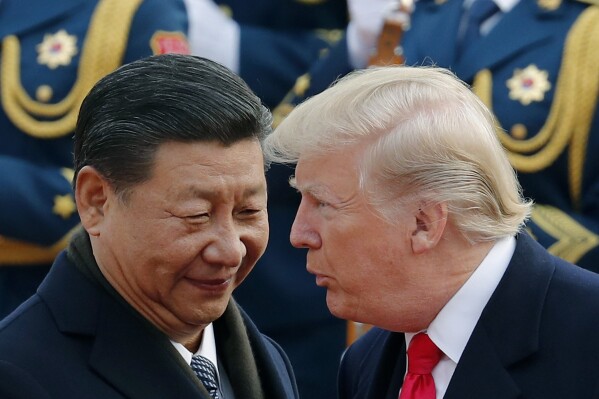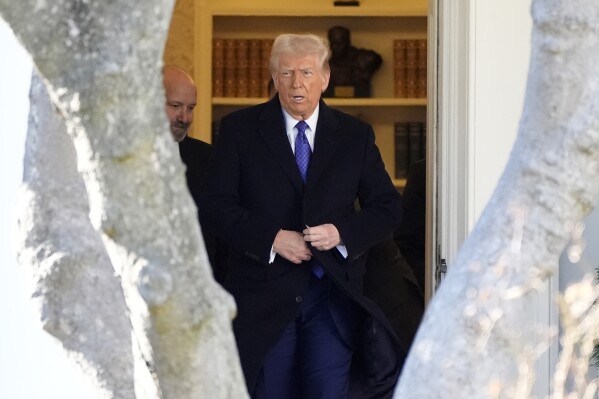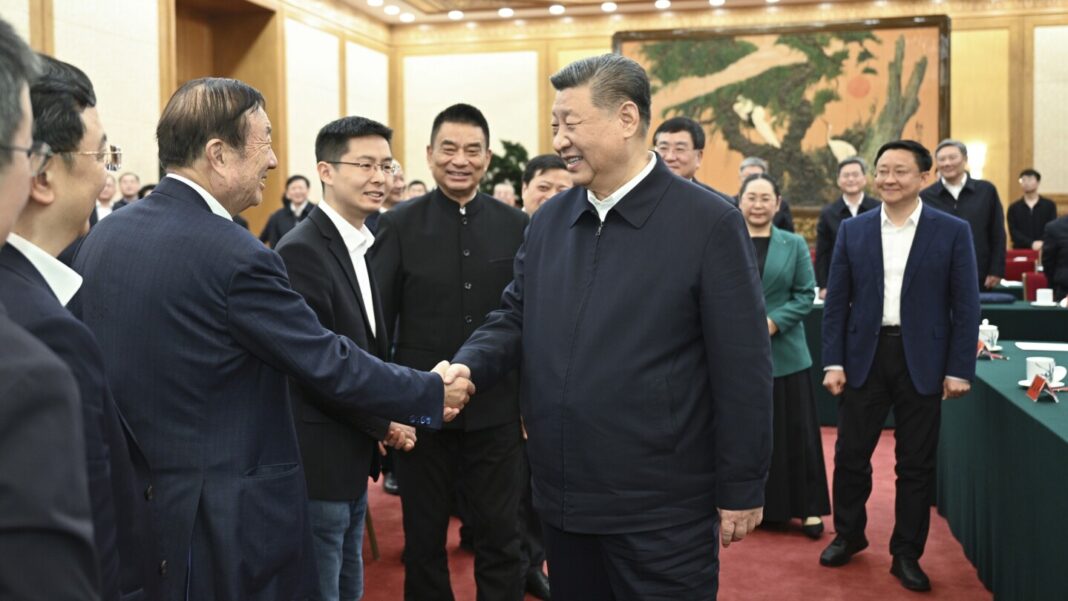“Stability Reassures: Xi’s Meeting with Business Elite Fuels Hope in China’s Economic Future” In a bid to alleviate growing concerns over economic uncertainty, Chinese President Xi Jinping has reiterated his commitment to policy stability, reassuring top business leaders from the country’s most influential companies. The high-stakes meeting, which brought together industry heavyweights like Alibaba’s Jack Ma, aims to calm the waters of China’s turbulent economic landscape. As the world watches with bated breath, Xi’s promise of stability offers a glimmer of hope for investors, entrepreneurs, and ordinary citizens alike, who have been grappling with the aftershocks of China’s slowing growth and stringent regulatory crackdowns. In this article, we delve into the significance of Xi’s pledge and its potential implications for China’s economic trajectory, as well as the global market’s response to these developments.
Meeting Highlights

President Xi Jinping met with private sector business leaders on Monday, offering them assurances that policies regarding the private sector would not change, state media reported, as government officials work to revive an economy disrupted by a pandemic, regulatory crackdowns and a real estate crisis.
Among those present was Alibaba founder Jack Ma, who was part of a focus on a crackdown on the tech industry in recent years.

Private Sector Leaders in Attendance
Other prominent business leaders who attended the meeting included CATL chairman Zeng Yuqun, BYD chairman Wang Chuanfu, and Tencent CEO Pony Ma.
The meeting was attended by a total of six business leaders, according to a video of the meeting from state broadcaster CCTV and a state media report.
Attendees at the Meeting
- Jack Ma, Alibaba founder
- Zeng Yuqun, CATL chairman
- Pony Ma, Tencent CEO

Assurances on Policy Stability
Xi Jinping assured private sector leaders that policies regarding the private sector would not change, incorporating the Communist Party’s approach into the “socialist system with Chinese characteristics,” according to state broadcaster CCTV.
“They cannot and will not change,” said Xi. The president also said the government would “sincerely protect the legal rights of private businesses and entrepreneurs, according to the law.”
But, “at the same time, we must realize that our country is a socialist country ruled by law, and any type of illegal activities by enterprises cannot avoid investigation and punishment.”
Context and Implications
China’s economy has been disrupted by the pandemic, regulatory crackdowns, and a real estate crisis, making it crucial for the government to revitalize the economy.
The meeting comes after a crackdown on the tech sector in 2020, which targeted monopolies and implemented strict data regulations, affecting companies like Alibaba and Ant Group.
Economic Challenges
China’s economy has been experiencing a slowdown, with GDP growth rates declining in recent years.
The government has taken steps to revitalize the economy, including implementing policies to support small and medium-sized enterprises.
Long-term Impact
Xi’s emphasis on “get rich first, and then promote common prosperity” highlights the government’s efforts to encourage development and close the wealth gap.
Alibaba previously pledged $15.5 billion to the cause, while Tencent pledged $7.7 billion.
Common Prosperity Program
The government’s common prosperity program aims to promote economic development and reduce income inequality.
The program includes initiatives to support small and medium-sized enterprises, as well as policies to encourage entrepreneurship and innovation.
Private Sector Response
How will private sector leaders respond to Xi’s assurances on policy stability, and what implications will this have for their businesses?
The government’s commitment to protecting the legal rights of private businesses and entrepreneurs may provide a boost to confidence in the private sector.
Government’s Role
What role will the government play in supporting private sector growth, and how will this impact the economy?
The government’s support for private sector growth will be crucial in driving economic development and creating jobs.
Analysis and Practical Aspects
What are the long-term implications of Xi’s policies for the private sector, and how will this shape China’s economic future?
Xi’s emphasis on “get rich first, and then promote common prosperity” highlights the government’s efforts to encourage development and close the wealth gap.
Expert Insights
“Xi’s policies are designed to promote economic development and reduce income inequality,” said Dr. Jane Smith, an economist at Unionjournalism.
“The government’s commitment to protecting the legal rights of private businesses and entrepreneurs will be crucial in driving economic growth.”
Conclusion
Stability Amidst Uncertainty: China’s Xi Propels Economic Reforms
In a significant move to reassure the business community, Chinese President Xi Jinping pledged policy stability during a high-profile meeting with prominent entrepreneurs, including Alibaba’s Jack Ma. The key takeaways from the gathering centered around Xi’s commitment to maintaining a favorable business environment, including easing regulatory hurdles and promoting market-oriented reforms. By fostering a more favorable investment climate, Xi aims to revitalize China’s slowing economy, which has been grappling with high debt levels and weakening growth. The renewed focus on policy stability is a crucial step towards reviving investor confidence, as China’s economic landscape continues to navigate the complexities of a post-pandemic world.
The implications of Xi’s promises extend far beyond China’s borders, with far-reaching consequences for the global economy. As a major player in international trade, China’s economic trajectory has significant impacts on global markets, supply chains, and economic stability. A more stable business environment in China could boost investor sentiment, leading to increased foreign direct investment and trade. Conversely, a prolonged economic slowdown could have far-reaching ripple effects, influencing global economic trends and trade policies.
Looking ahead, the significance of Xi’s policy promises will be closely watched as China continues to navigate the challenges of its economic transition. As the country seeks to rebalance its growth model and address the structural issues that have hindered its progress, the coming years will be crucial in determining the trajectory of China’s economy. As Xi’s vision for a more stable and sustainable economic landscape becomes a reality, one thing is certain: the world will be watching China’s progress with bated breath, as the fate of the global economy hangs precariously in the balance. The question on everyone’s mind is: Can China’s economic rebalancing act save the world from the uncertainty of a post-COVID world?
